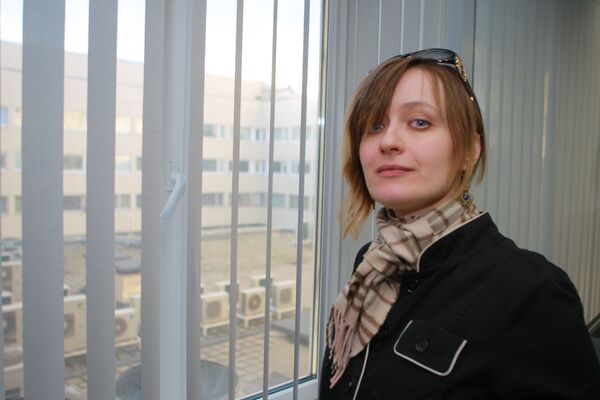Today I have some good news: the Uzbek street cleaner, who famously broke the jaw of a 12-year-old Moscow schoolboy, has been set free, and criminal proceedings against him have been stopped.
“Good news?!” you ask, having spit out your coffee (or whatever your poison of choice is at the moment). “This is good news?!”
Well, yes, actually. For several reasons.
First of all, there were always two sides to this story, which shocked and angered Muscovites at the beginning of this year. According to Artyom Khoteyev, the victim, he and his friends were having a snowball fight outside – and accidentally hit the street cleaner with a snowball. The street cleaner, Bakhrom Khurramov, then got angry and chased them, shovel in hand. At one point, the handle of the shovel came off, and Khurramov threw it at one of the kids – hitting Artyom in the face and breaking his jaw.
But there was another version of events – one that the neighbors, who knew both parties, supported. In it, Artyom and his friends regularly tormented Khurramov. The snowball was no accident, and was merely another episode in a long line of insults. And the shovel didn’t just “come apart” – the neighbors alleged that Artyom and his buddies had broken it.
The neighbors had known and liked Khurramov, and petitioned the court to let him go. He had been in custody since the January 6 incident, and it was also discovered that he and his wife Dzhamilya were technically homeless, living illegally in a trash disposal area of the building next to which the incident took place.
Khurramov’s story polarized society, where people can’t make up their minds as to how to characterize migrant workers. Are they exploited and humiliated? Are they dangerous and prone to violence? Are they merely human?
The Uzbek diaspora in Moscow rallied around Khurramov – but they also understood that Artyom’s injury could not be simply swept under the rug. They collected 50,000 rubles for Artyom’s family – to make sure that his medical treatment is taken care of. Khurramov then publicly apologized to Artyom for what happened. And then Artyom’s mother took the unusual step of writing a new statement to be included in the court records – the statement said that she harbored no ill will toward Khurramov.
The court decided to end the criminal proceedings against Khurramov, ruling that both sides of the conflict had made peace. The prosecutor wasn’t happy about it and plans to appeal – but it was the sanest possible decision. Why drag out a conflict that has polarized the local community, when an easier solution is to be had?
Kids can be cruel. This radical statement will surprise no one who has ever met a 12-year-old. Kids can be especially cruel when they see adults bully and degrade a marginalized group. If Artyom had indeed abused Khurramov, it had probably felt easy for him. There is individual responsibility – but there is also the responsibility of the adults in his life, the ones who scapegoat migrants for all offenses, real and imagined. Artyom also suffered a painful injury – and possible psychological trauma stemming from the incident, the kind of trauma that may take years to manifest itself. There are lessons to be learned about cruelty – but at what price?
There is also the fact that people living in unbearable conditions are regularly pushed to their limits. Poverty and cruelty breed crime and violence – and this is something that Moscow can no longer afford to ignore. Simply saying: “Well, let’s just throw them all out of Russia” is not a solution to the problems the guest workers face – and the problems they cause. Toughening migration laws and making populist statements on the evening news is not getting the government very far.
The story I am telling you could have had a much sadder ending. As such, it has served as a powerful reminder of how desperation can take you too far. And how making peace can bring you back.
Trendwatching in Russia is an extreme sport: if you’re not dodging champagne corks at weddings, you’re busy avoiding getting trampled by spike heels on public transportation. Thankfully, due to an amazing combination of masochism and bravado, I will do it for you while you read all about it from the safety of your living room.
Natalia Antonova is the acting editor-in-chief of The Moscow News. She also works as a playwright – her work has been featured at the Lyubimovka Festival in Moscow and Gogolfest in Kiev, Ukraine. She was born in Ukraine, but spent most of her life in the United States. She graduated from Duke University, where she majored in English and Slavic Literature. Before coming to Moscow, she worked in Dubai, UAE and Amman, Jordan. Her writing has been featured in The Guardian, Foreign Policy, Russia Profile, AlterNet, et al.
Trendwatcher: Meanwhile in Russia, a Tank Crossed the Road
Trendwatcher: Acid Attack on Bolshoi Director Has Terrifying Implications
Trendwatcher: Irina Kabanova – No One to Turn To?
Trendwatcher: The Dima Yakovlev Law – A Crying Shame
Trendwatcher:Thinking Locally on Adoption
Trendwatcher: This American Pig
Trendwatcher: Desperately Seeking Pavel Kostomarov
Trendwatcher: A Day in the Life of Tatyana Ivanova

